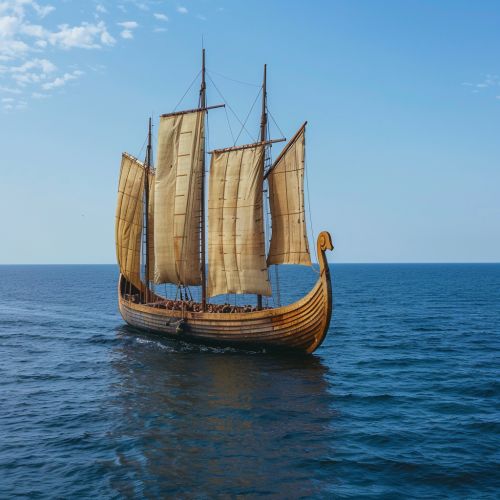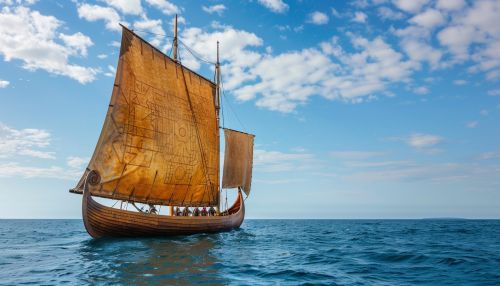Viking Age
Introduction
The Viking Age was a period of significant exploration, trade, and cultural change in Europe, initiated by the seafaring activities of the Norse people from the Scandinavian regions. This period, spanning from the late 8th century to the early 11th century, is characterized by the Vikings' expansion across the continents of Europe, Asia, and North America.


Origins and Expansion
The Viking Age began with the raid on the Monastery of Lindisfarne in 793 AD, marking the start of the Vikings' seafaring expeditions. The Norse people, originating from the Scandinavian countries of Denmark, Norway, and Sweden, embarked on these journeys in their distinctive longships, known for their speed and versatility in both open sea and shallow waters.
The Vikings' expansion was driven by a combination of factors, including population pressure, political ambitions, and the lure of wealth in foreign lands. They established settlements and trading posts across Europe, Asia, and North America, reaching as far as Vinland in the west and the Volga trade route in the east.
Society and Culture
Viking society was organized in a hierarchical structure, with the king or chieftain at the top, followed by the free men, slaves, and women. The society was predominantly rural, with most Vikings engaged in farming and fishing. However, the Viking Age also saw a significant increase in urbanization, with the establishment of towns such as Hedeby and Birka.
The Vikings were polytheistic, worshipping a pantheon of gods led by Odin, the god of war and wisdom, and Thor, the god of thunder. They believed in a complex cosmology, with nine worlds interconnected by the world tree, Yggdrasil.
Impact and Legacy
The Viking Age had a profound impact on the history and culture of the regions they explored. They established trade routes that connected different parts of the world, facilitating the exchange of goods, ideas, and cultural practices. The Vikings also played a significant role in the formation of several European states, including Russia, England, and Scotland.
The legacy of the Viking Age is evident in various aspects of contemporary society, from language and literature to art and architecture. The Norse sagas, epic tales of heroes and gods, continue to inspire modern works of fiction, while the Viking's distinctive shipbuilding techniques have influenced naval architecture.
